There are many different European institutions and organisations working on topics related to small-scale detention houses. These organisations, their knowledge and expertice, are of great importance shaping the future of detention.
European institutions refer to the various organisations and bodies that form the institutional framework of the European Union (EU), which is a political and economic union of 27 European countries. From the organisations below these refer to the European Union, Council of Europe and Council of Europe Development Bank.
European organisations encompass a wide range of non governmental organisations operating across Europe, addressing many of the core topics related to detention houses.
This symposium is co-funded by the European Union. Views and opinions expressed are however those of the authors only and do not necessarily reflect those of the European Union. Neither the European Union nor the granting authority can be held responsible for them. This is the same regarding the Council of Europe and Council of European Development Bank.
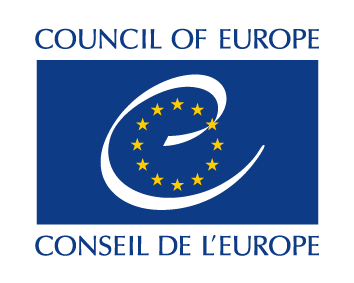
The Council of Europe (CoE) is the continent’s leading human rights organisation. It includes 46 member states, 27 of which are members of the European Union. It was established in the wake of World War II to uphold human rights, democracy and the rule of law in Europe. The organisation is distinct from the European Union. As an international organisation, the Council of Europe cannot make laws, but it does have the ability to push for the enforcement of select international agreements reached by member states on various topics. The best-known body of the Council of Europe is the European Court of Human Rights, which functions on the basis of the European Convention on Human Rights of 1953.
Promote democracy, human rights and the rule of law across Europe and beyond.
CoE
The Council of Europe (CoE) is the continent’s leading human rights organisation. It includes 46 member states, 27 of which are members of the European Union. It was established in the wake of World War II to uphold human rights, democracy and the rule of law in Europe. The organisation is distinct from the European Union. As an international organisation, the Council of Europe cannot make laws, but it does have the ability to push for the enforcement of select international agreements reached by member states on various topics. The best-known body of the Council of Europe is the European Court of Human Rights, which functions on the basis of the European Convention on Human Rights of 1953.

Promote democracy, human rights and the rule of law across Europe and beyond.
CoE
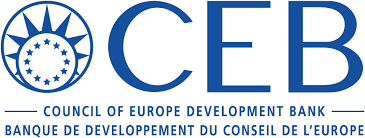
The Council of Europe Development Bank (CEB) is a multilateral development bank with an exclusively social mandate. The CEB’s mission is to promote social cohesion in Europe, defined as “the capacity of a society to ensure the well-being of all its members, minimising disparities and avoiding marginalisation”. The CEB is active in the sectors of health and social care, education and vocational training, administrative and judicial infrastructure, historic and cultural heritage, social and affordable housing, urban rural and regional development, natural or ecological disasters, environmental protection, MSME financing, and microfinance. Three cross-cutting themes guide the way in which CEB activities are designed and implemented across all sectors: climate action, gender equality, and digitalisation.
A multilateral development bank with an exclusively social mandate.
CEB

A multilateral development bank with an exclusively social mandate.
CEB
The Council of Europe Development Bank (CEB) is a multilateral development bank with an exclusively social mandate. The CEB’s mission is to promote social cohesion in Europe, defined as “the capacity of a society to ensure the well-being of all its members, minimising disparities and avoiding marginalisation”. The CEB is active in the sectors of health and social care, education and vocational training, administrative and judicial infrastructure, historic and cultural heritage, social and affordable housing, urban rural and regional development, natural or ecological disasters, environmental protection, MSME financing, and microfinance. Three cross-cutting themes guide the way in which CEB activities are designed and implemented across all sectors: climate action, gender equality, and digitalisation.

The European Union (EU), consists of 27 European countries and governs common economic, social, and security policies. Promoting peace and security and respecting fundamental rights and freedoms are just some of the European Union’s aims and values. The priorities derive from a dialogue between EU leaders, national ministers, EU institutions and the political groups elected to the European Parliament. In June 2019, EU leaders set out their priorities in the 2019-2024 EU strategic agenda. This serves as inspiration for the European Commission’s political priorities, which it draws up before taking office for a 5-year term.
Promoting a green Europe, developing the economic base, protecting citizens and their freedoms.
EU
The European Union (EU), consists of 27 European countries and governs common economic, social, and security policies. Promoting peace and security and respecting fundamental rights and freedoms are just some of the European Union’s aims and values. The priorities derive from a dialogue between EU leaders, national ministers, EU institutions and the political groups elected to the European Parliament. In June 2019, EU leaders set out their priorities in the 2019-2024 EU strategic agenda. This serves as inspiration for the European Commission’s political priorities, which it draws up before taking office for a 5-year term.

Promoting a green Europe, developing the economic base, protecting citizens and their freedoms.
EU

The European Prison Education Association (EPEA) is an organisation made up of prison educators, administrators, governors, researchers and other professionals, whose interests lie in promoting and developing education and related activities in prisons throughout Europe in accordance with the recommendations of the Council of Europe. The EPEA is recognised by the Council of Europe as a Non-Governmental Organisation (NGO). It is committed to working with prison administrations in Europe to further its aims, but is totally free-standing and independent. The EPEA has established itself as the European voice for prison education drawing its membership from over 40 countries. Main activities are; Advocacy, Policy Formation, Professional Development of Prison Teachers, Networking and Research.
“Education is the kindling of a flame, not the filling of a vessel.”
EPEA
The European Prison Education Association (EPEA) is an organisation made up of prison educators, administrators, governors, researchers and other professionals, whose interests lie in promoting and developing education and related activities in prisons throughout Europe in accordance with the recommendations of the Council of Europe. The EPEA is recognised by the Council of Europe as a Non-Governmental Organisation (NGO). It is committed to working with prison administrations in Europe to further its aims, but is totally free-standing and independent. The EPEA has established itself as the European voice for prison education drawing its membership from over 40 countries. Main activities are; Advocacy, Policy Formation, Professional Development of Prison Teachers, Networking and Research.

“Education is the kindling of a flame, not the filling of a vessel.”
EPEA
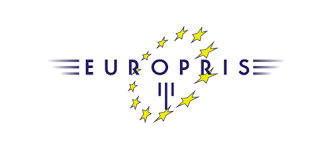
The European Organisation of Prison and Correctional Services (EuroPris) is a non-political, non-governmental organisation founded in 2011. Public institutions or organisations in the Council of Europe region, which provide prison or correctional services on a legal or statutory basis can become members of EuroPris.
EuroPris brings together practitioners in the prisons’ arena with the specific intention of promoting ethical and rights-based imprisonment, exchanging information and providing expert assistance to support this agenda. The organisation exists to improve co-operation among European Prison and Correctional Services, with the aim of improving the lives of prisoners and their families, enhancing public safety and security; reducing re-offending; and advancing professionalism in the corrections’ field.
Public safety and security through improved detention standards and practice in Europe.
EuroPris

Public safety and security through improved detention standards and practice in Europe.
EuroPris
The European Organisation of Prison and Correctional Services (EuroPris) is a non-political, non-governmental organisation founded in 2011. Public institutions or organisations in the Council of Europe region, which provide prison or correctional services on a legal or statutory basis can become members of EuroPris.
EuroPris brings together practitioners in the prisons’ arena with the specific intention of promoting ethical and rights-based imprisonment, exchanging information and providing expert assistance to support this agenda. The organisation exists to improve co-operation among European Prison and Correctional Services, with the aim of improving the lives of prisoners and their families, enhancing public safety and security; reducing re-offending; and advancing professionalism in the corrections’ field.
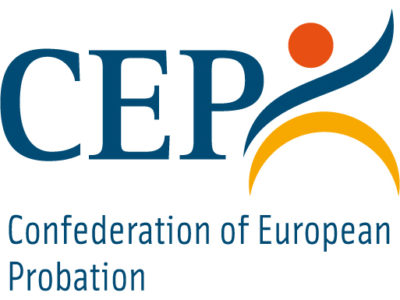
CEP was founded in 1981 and is the Confederation of European Probation. It aims to promote the social inclusion of offenders through community sanctions and measures such as probation, community service, mediation and conciliation. CEP is committed to enhance the profile of probation and to improve professionalism in this field, on a national and a European level. CEP therefore promotes pan-European cooperation by organizing conferences on actual topics in probation. CEP stimulates the exchange of ideas on probation. In this way it makes an important contribution to the development of community sanctions and measures.
Its members are organisations working in the field of probation and interested individuals. CEP thus brings together practitioners, managers, academics, stakeholders and others working in the field of probation and criminal justice from all over Europe. Together they represent a unique network of expertise about positive ways of working with offenders in the community. Their common concern is how to protect society without resorting to the expense of prison. To contribute to safer communities by rehabilitating and reintegrating offenders and providing the best possible interventions to reduce offending and the impact of crime.
Providing the best possible interventions to reduce offending and the impact of crime.
CEP
CEP was founded in 1981 and is the Confederation of European Probation. It aims to promote the social inclusion of offenders through community sanctions and measures such as probation, community service, mediation and conciliation. CEP is committed to enhance the profile of probation and to improve professionalism in this field, on a national and a European level. CEP therefore promotes pan-European cooperation by organizing conferences on actual topics in probation. CEP stimulates the exchange of ideas on probation. In this way it makes an important contribution to the development of community sanctions and measures.
Its members are organisations working in the field of probation and interested individuals. CEP thus brings together practitioners, managers, academics, stakeholders and others working in the field of probation and criminal justice from all over Europe. Together they represent a unique network of expertise about positive ways of working with offenders in the community. Their common concern is how to protect society without resorting to the expense of prison. To contribute to safer communities by rehabilitating and reintegrating offenders and providing the best possible interventions to reduce offending and the impact of crime.

Providing the best possible interventions to reduce offending and the impact of crime.
CEP
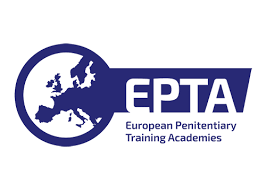
It is important that within the European Union correctional staff receive adequate training in order to ensure that fundamental rights of prisoners remain respected. This belief was re-enforced by the Council of Europe’s decision to establish common European Prison Rules in 1973. In 2010, the European Penitentiary Training Academies Network (EPTA) was founded by the heads of a number of European Penitentiary Staff Training Academies for the provision of a structure that can support the sharing of effective training methodologies and contents across Europe. The EPTA network has seen success as a result of the voluntary input from its members.
Tackling gaps in cross-border cooperation for penintentiary training academies.
EPTA

Tackling gaps in cross-border cooperation for penintentiary training academies.
EPTA
It is important that within the European Union correctional staff receive adequate training in order to ensure that fundamental rights of prisoners remain respected. This belief was re-enforced by the Council of Europe’s decision to establish common European Prison Rules in 1973. In 2010, the European Penitentiary Training Academies Network (EPTA) was founded by the heads of a number of European Penitentiary Staff Training Academies for the provision of a structure that can support the sharing of effective training methodologies and contents across Europe. The EPTA network has seen success as a result of the voluntary input from its members.

The European Prison Observatory (EPO) is a project coordinated by the Italian Ngo Antigone. The European Prison Observatory studies, through quantitative and qualitative analysis, the condition of the national prison systems and the related systems of alternatives to detention, comparing these conditions to the international norms and standards relevant for the protections of detainees’ fundamental rights. The European Prison Observatory highlights to European experts and practitioners ‘good practices’ existing in the different countries, both for prison management and for the protection of prisoners’ fundamental rights. It promotes the adoption of the CPT standards and of the other international legal instruments on detention as a fundamental reference for the activities of the available national monitoring bodies.
Prison monitoring by the civil society: a document for European institutions.
EPO
The European Prison Observatory (EPO) is a project coordinated by the Italian Ngo Antigone. The European Prison Observatory studies, through quantitative and qualitative analysis, the condition of the national prison systems and the related systems of alternatives to detention, comparing these conditions to the international norms and standards relevant for the protections of detainees’ fundamental rights. The European Prison Observatory highlights to European experts and practitioners ‘good practices’ existing in the different countries, both for prison management and for the protection of prisoners’ fundamental rights. It promotes the adoption of the CPT standards and of the other international legal instruments on detention as a fundamental reference for the activities of the available national monitoring bodies.

Prison monitoring by the civil society: a document for European institutions.
EPO
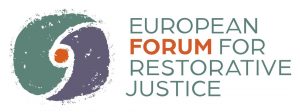
The European Forum for Restorative Justice (EFRJ) is an international network organisation connecting members active in the field of restorative justice as practitioners, academics and policy makers throughout Europe and beyond. We promote research, policy and practice development so that every person may have access to high quality restorative justice services, at any time and in any case. Our main focus is on the application of restorative justice to criminal matters but other areas, such as family, school and community mediation, are not excluded.
The EFRJ does not defend any one ‘best practice’ model of restorative justice, but recognises that restorative justice is an evolving approach. However, it is essential that any restorative service should be based on core restorative values and principles and should adhere to standards of good practice.
Every society is continuously looking for better ways on how to deal with incidents.
EFRJ
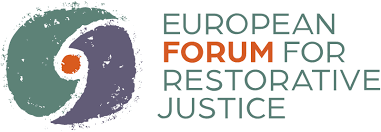
Every society is continuously looking for better ways on how to deal with incidents.
EFRJ
The European Forum for Restorative Justice (EFRJ) is an international network organisation connecting members active in the field of restorative justice as practitioners, academics and policy makers throughout Europe and beyond. We promote research, policy and practice development so that every person may have access to high quality restorative justice services, at any time and in any case. Our main focus is on the application of restorative justice to criminal matters but other areas, such as family, school and community mediation, are not excluded.
The EFRJ does not defend any one ‘best practice’ model of restorative justice, but recognises that restorative justice is an evolving approach. However, it is essential that any restorative service should be based on core restorative values and principles and should adhere to standards of good practice.

International Corrections and Prison Association (ICPA) is an innovative, learning platform which enhances international and inter-agency co-operation. We actively promote policies and standards for humane and effective correctional policies and practices, assisting in their development and implementation. We believe that imprisonment is a last resort and support the development of alternative sanctions and community corrections. We believe in integrity and professionalism, the sharing of ideas and partnerships. We believe in the capacity for positive change in individuals, their dignity and the duty to protect their rights.
Promote the advancement of corrections through ICT & Technology.
ICPA
International Corrections and Prison Association (ICPA) is an innovative, learning platform which enhances international and inter-agency co-operation. We actively promote policies and standards for humane and effective correctional policies and practices, assisting in their development and implementation. We believe that imprisonment is a last resort and support the development of alternative sanctions and community corrections. We believe in integrity and professionalism, the sharing of ideas and partnerships. We believe in the capacity for positive change in individuals, their dignity and the duty to protect their rights.

Promote the advancement of corrections through ICT & Technology.
ICPA
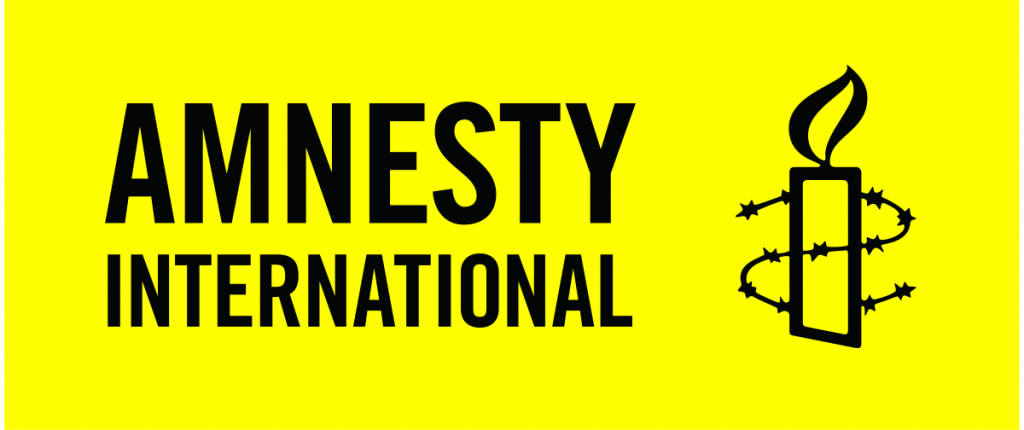
Amnesty International is a global movement of more than 10 million people who are committed to creating a future where human rights are enjoyed by everyone. United by their shared humanity, they know that the power to create positive change is within all of us.
They are funded by members and people like you. They are independent of any political ideology, economic interest or religion. They stand with victims of human rights violations whoever they are, wherever they are.
No government is beyond scrutiny. They uncover the truth. They hold human rights violators to account.
Campaign for a world where human rights are enjoyed by all.
AMNESTY INTERNATIONAL

Campaign for a world where human rights are enjoyed by all.
Amnesty International
Amnesty International is a global movement of more than 10 million people who are committed to creating a future where human rights are enjoyed by everyone. United by their shared humanity, they know that the power to create positive change is within all of us.
They are funded by members and people like you. They are independent of any political ideology, economic interest or religion. They stand with victims of human rights violations whoever they are, wherever they are.
No government is beyond scrutiny. They uncover the truth. They hold human rights violators to account.

The World Health Organization (WHO) Regional Office for Europe (WHO/Europe) is one of WHO’s six regional offices around the world. It serves the WHO European Region, which comprises 53 countries. The European Programme of Work, 2020–2025 – “United Action for Better Health in Europe” (EPW) has been developed through a process of extensive consultation with Member States, the European Commission, non-State actors, intergovernmental and United Nations organizations, as well as WHO staff. WHO / Europe has identified 4 flagship initiatives to complement the European Programme of Work, which defines health priorities for the next 5 years; 1. The Pan-European Mental Health Coalition, 2. Empowerment through Digital Health, The European Immunization Agenda 2023, 4. Healthier behaviours: incorporating behavioural and cultural insights.
Champions for healthier, safer lives.
WHO
The World Health Organization (WHO) Regional Office for Europe (WHO/Europe) is one of WHO’s six regional offices around the world. It serves the WHO European Region, which comprises 53 countries. The European Programme of Work, 2020–2025 – “United Action for Better Health in Europe” (EPW) has been developed through a process of extensive consultation with Member States, the European Commission, non-State actors, intergovernmental and United Nations organizations, as well as WHO staff. WHO / Europe has identified 4 flagship initiatives to complement the European Programme of Work, which defines health priorities for the next 5 years; 1. The Pan-European Mental Health Coalition, 2. Empowerment through Digital Health, The European Immunization Agenda 2023, 4. Healthier behaviours: incorporating behavioural and cultural insights.

Champions for healthier, safer lives.
WHO

Founded in 2000, Children of Prisoners Europe (COPE) is an European network working with and on behalf of children with imprisoned parents. The network encourages innovative perspectives and practice to ensure that the rights of children with imprisoned parents are fully respected and that action is taken to secure their well-being and healthy development. COPE is a membership-based organisation made up of non-governmental organisations, individuals and other stakeholders across Europe and beyond, linked by a staff team based at its Paris headquarters.
With our network of European partners active within prison-related, child rights and child-welfare fields, we seek to boost awareness and achieve new ways of thinking, acting and interacting on issues concerning children affected by parental imprisonment.
Safeguard the social, political and judicial inclusion of children with an imprisoned parent.
COPE

Safeguard the social, political and judicial inclusion of children with an imprisoned parent.
COPE
Founded in 2000, Children of Prisoners Europe (COPE) is an European network working with and on behalf of children with imprisoned parents. The network encourages innovative perspectives and practice to ensure that the rights of children with imprisoned parents are fully respected and that action is taken to secure their well-being and healthy development. COPE is a membership-based organisation made up of non-governmental organisations, individuals and other stakeholders across Europe and beyond, linked by a staff team based at its Paris headquarters.
With our network of European partners active within prison-related, child rights and child-welfare fields, we seek to boost awareness and achieve new ways of thinking, acting and interacting on issues concerning children affected by parental imprisonment.

Penal Reform International (PRI) is a non-governmental organisation working globally to promote criminal justice systems that uphold human rights for all and do no harm. We work to make criminal justice systems non-discriminatory and protect the rights of disadvantaged people. We run practical human rights programmes and support reforms that make criminal justice fair and effective.
Over 11 million men, women and children are in prison around the world, a large proportion for minor and non-violent offences. Over 3 million people in detention are awaiting trial. However, overall, crime is not rising; the number of people in contact with criminal justice systems across the globe, and significantly the number of people in detention, is rising.
Safeguard the social, political and judicial inclusion of children with an imprisoned parent.
PRI
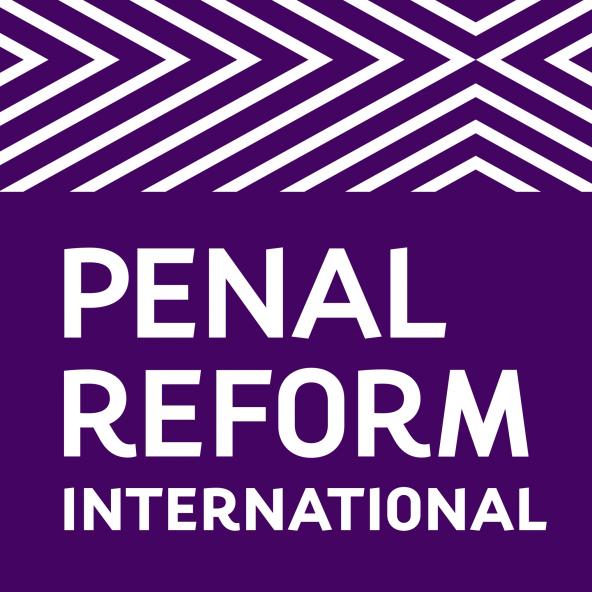
Safeguard the social, political and judicial inclusion of children with an imprisoned parent.
PRI

Defence for Children International (DCI) is a leading child rights-focused and membership-based grassroots movement founded in 1979. Our mandate is to ensure effective implementation of the United Nations Convention on the Rights of the Child (UNCRC) at the local, national and international level. Our vision is that children, as human beings, are able to pursue a life in which they can enjoy their human rights with dignity, in a just and responsible society. In all that we do, we aspire to work in a transparent, accountable, sustainable and socially transformative way.
We keep on working until the world is a better place for all our children.
DCI

We keep on working until the world is a better place for all our children.
DCI
Defence for Children International (DCI) is a leading child rights-focused and membership-based grassroots movement founded in 1979. Our mandate is to ensure effective implementation of the United Nations Convention on the Rights of the Child (UNCRC) at the local, national and international level. Our vision is that children, as human beings, are able to pursue a life in which they can enjoy their human rights with dignity, in a just and responsible society. In all that we do, we aspire to work in a transparent, accountable, sustainable and socially transformative way.

Human Rights Watch investigates and reports on abuses happening in all corners of the world. We are roughly 550 plus people of 70-plus nationalities who are country experts, lawyers, journalists, and others who work to protect the most at risk, from vulnerable minorities and civilians in wartime, to refugees and children in need. We direct our advocacy towards governments, armed groups and businesses, pushing them to change or enforce their laws, policies and practices. To ensure our independence, we refuse government funding and carefully review all donations to ensure that they are consistent with our policies, mission, and values. We partner with organisations large and small across the globe to protect embattled activists and to help hold abusers to account and bring justice to victims.
Defend rights, secure justice.
HUMAN RIGHTS WATCH
Human Rights Watch investigates and reports on abuses happening in all corners of the world. We are roughly 550 plus people of 70-plus nationalities who are country experts, lawyers, journalists, and others who work to protect the most at risk, from vulnerable minorities and civilians in wartime, to refugees and children in need. We direct our advocacy towards governments, armed groups and businesses, pushing them to change or enforce their laws, policies and practices. To ensure our independence, we refuse government funding and carefully review all donations to ensure that they are consistent with our policies, mission, and values. We partner with organisations large and small across the globe to protect embattled activists and to help hold abusers to account and bring justice to victims.

Defend rights, secure justice.
Human Rights Watch

Eurocities is the largest network of European cities. We count over 200 large cities among our membership, representing more than 150 million people across 38 countries, from within and outside the European Union. With three out of four people in Europe living in an urban environment, today’s challenges have a particularly strong impact on cities – at the same time, cities are uniquely placed to tackle these issues.
Our mission is to build places where people can enjoy a good quality of life in a healthy, green environment. Where low-carbon and smart solutions make for cleaner air and better public services. And where people can move around sustainably, feel connected to their community and all newcomers are welcomed.
Three out of four people in Europe living in an urban environment.
Eurocities

Three out of four people in Europe living in an urban environment.
Eurocities
Eurocities is the largest network of European cities. We count over 200 large cities among our membership, representing more than 150 million people across 38 countries, from within and outside the European Union. With three out of four people in Europe living in an urban environment, today’s challenges have a particularly strong impact on cities – at the same time, cities are uniquely placed to tackle these issues.
Our mission is to build places where people can enjoy a good quality of life in a healthy, green environment. Where low-carbon and smart solutions make for cleaner air and better public services. And where people can move around sustainably, feel connected to their community and all newcomers are welcomed.

Victim Support Europe (VSE) is the leading European umbrella organisation that advocates on behalf of all victims of crime, no matter what the crime, no matter who the victim. Since its foundation in 1990, VSE has worked on behalf of all European – and global – victims to ensure their rights and services, whether they have reported a crime or not. VSE represents 78 national member organisations, providing support and information services to more than 3 million people affected by crime every year in 36 countries. We work through advocacy to achieve our mission of improving European and international laws related to victims rights, using research, knowledge development, and capacity building at the national and local level.
Strengthening the rights and services for all victims of crime in Europe and beyond.
VSE

Strengthening the rights and services for all victims of crime in Europe and beyond.
VSE

To lead in advancing a human rights, community-based, recovery-oriented and psychosocial approach to mental health and well-being for all.
Mental Health Europe is a European non-governmental network organisation committed to the promotion of positive mental health, the prevention of mental distress, the improvement of care, advocacy for social inclusion and the protection of the rights of (ex)users of mental health services, persons with psychosocial disabilities, their families and carers.
MHE works closely with the European Institutions and international bodies to mainstream mental health in all policies and end mental health stigma. MHE places users of mental services at the centre of its work to ensure the voice of people who have experienced mental ill health is heard across Europe.
A Europe where everyone’s mental health and wellbeing flourish across their life course.
MHE

A Europe where everyone’s mental health and wellbeing flourish across their life course.
MHE
To lead in advancing a human rights, community-based, recovery-oriented and psychosocial approach to mental health and well-being for all.
Mental Health Europe is a European non-governmental network organisation committed to the promotion of positive mental health, the prevention of mental distress, the improvement of care, advocacy for social inclusion and the protection of the rights of (ex)users of mental health services, persons with psychosocial disabilities, their families and carers.
MHE works closely with the European Institutions and international bodies to mainstream mental health in all policies and end mental health stigma. MHE places users of mental services at the centre of its work to ensure the voice of people who have experienced mental ill health is heard across Europe.
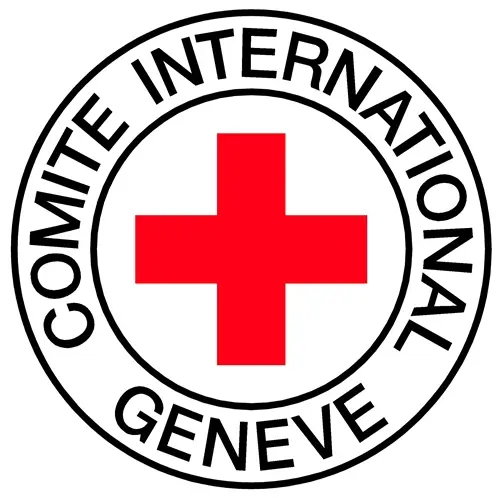
Established in 1863, the International Committee of the Red Cross (ICRC) operates worldwide, helping people affected by conflict and armed violence and promoting the laws that protect victims of war. An independent and neutral organisation, its mandate stems essentially from the Geneva Conventions of 1949. We are based in Geneva, Switzerland, and employ over 21,000 people in more than 100 countries. The ICRC is funded mainly by voluntary donations from governments and from National Red Cross and Red Crescent Societies.
To protect the lives and dignity of victims of armed conflict and violence and to provide them with assistance.
ICRC
Established in 1863, the International Committee of the Red Cross (ICRC) operates worldwide, helping people affected by conflict and armed violence and promoting the laws that protect victims of war. An independent and neutral organisation, its mandate stems essentially from the Geneva Conventions of 1949. We are based in Geneva, Switzerland, and employ over 21,000 people in more than 100 countries. The ICRC is funded mainly by voluntary donations from governments and from National Red Cross and Red Crescent Societies.

To protect the lives and dignity of victims of armed conflict and violence and to provide them with assistance.
ICRC
Together, we want to create a space where everyone can feel accepted and respected – regardless of gender identity, skin colour, religion, ethnicity or ability. We assume that all participants come to our events with the best intentions and treat each other with respect.